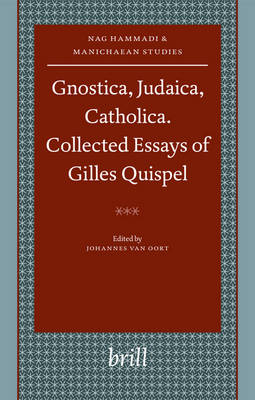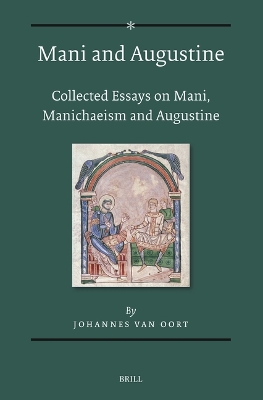Nag Hammadi and Manichaean Studies
2 primary works
Book 55
Gnostica, Judaica, Catholica. Collected Essays of Gilles Quispel
by Gilles Quispel and Johannes van Oort
Published 1 January 2008
This volume brings together a rich and varied collection of essays by Gilles Quispel (1916-2006), Professor of the History of the Early Church at Utrecht University from 1951 until his retirement in 1983. During his illustrious career, Professor Quispel was also visiting Professor at Harvard University in 1964/65, and visiting Professor at the Catholic University of Leuven from 1969 until 1974.
The fifty essays collected in this volume testify to most of the prominent themes from Professor Quispel's scholarly career: the writings of the Nag Hammadi library in general and the Gospel of Thomas in particular; Tatian's Diatessaron and its influences; the Hermetica; Mani and Manichaeism; the Jewish origins of Gnosticism; and Gnosis and the future of Christianity. This volume also makes a number of his less known earlier publications (mainly presented under the heading 'Catholica') available to the international community.
Until shortly before he died, Professor Quispel remained active in his study of the Gospel of Thomas. He had been one of the first to acquire the Coptic text of the Gospel of Thomas, of which he published the first translation in 1959 and his final translation in 2005. He was also active in researching the Diatessaron, and Valentinus 'the Gnostic'. One of his most recent essays - published for the first time in this volume - is on 'the Muslim Jesus.'
The fifty essays collected in this volume testify to most of the prominent themes from Professor Quispel's scholarly career: the writings of the Nag Hammadi library in general and the Gospel of Thomas in particular; Tatian's Diatessaron and its influences; the Hermetica; Mani and Manichaeism; the Jewish origins of Gnosticism; and Gnosis and the future of Christianity. This volume also makes a number of his less known earlier publications (mainly presented under the heading 'Catholica') available to the international community.
Until shortly before he died, Professor Quispel remained active in his study of the Gospel of Thomas. He had been one of the first to acquire the Coptic text of the Gospel of Thomas, of which he published the first translation in 1959 and his final translation in 2005. He was also active in researching the Diatessaron, and Valentinus 'the Gnostic'. One of his most recent essays - published for the first time in this volume - is on 'the Muslim Jesus.'
Book 97
Mani and Augustine: collected essays on Mani, Manichaeism and Augustine gathers in one volume contributions on Manichaean scholarship made by the internationally renowned scholar Johannes van Oort. The first part of the book focuses on the Babylonian prophet Mani (216-277) who styled himself an 'apostle of Jesus Christ', on Jewish elements in Manichaeism and on 'human semen eucharist', eschatology and imagery of Christ as 'God's Right Hand'. The second part of the book concentrates on the question to what extent the former 'auditor' Augustine became acquainted with Mani's gnostic world religion and his canonical writings, and explores to what extent Manichaeism had a lasting impact on the most influential church father of the West.

